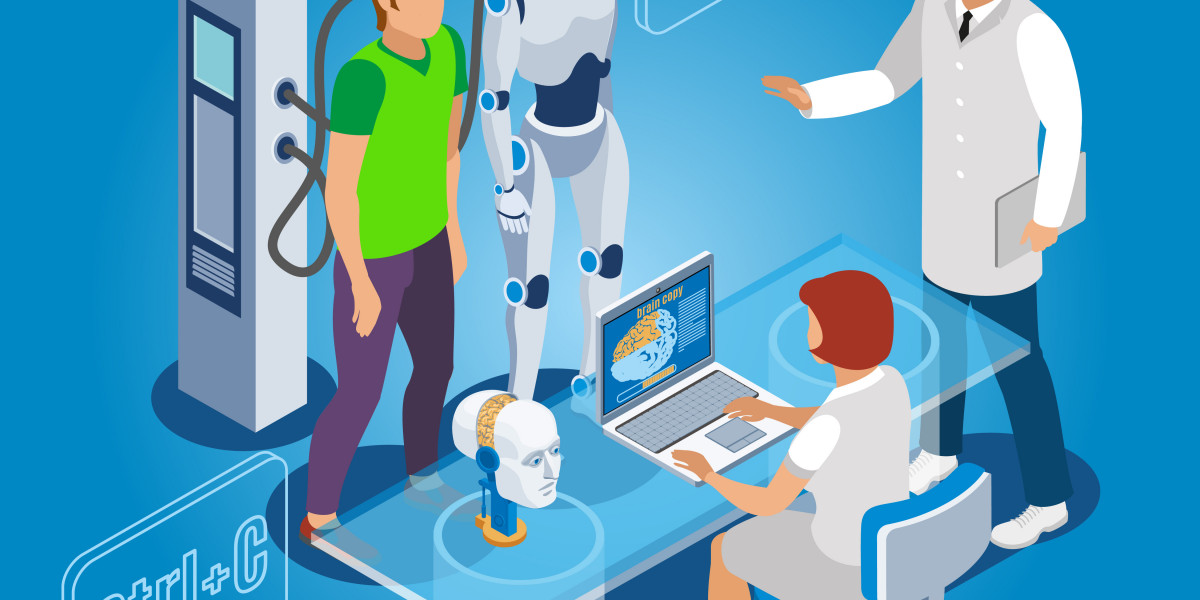Artificial intelligence (AI) is a game-changing technology in an era of technological advancements, especially in the healthcare industry. The use of AI in healthcare is expanding rapidly, with a 37% compound annual growth rate predicted between 2022 and 2030. Healthcare AI was estimated by Statista to be worth $11 billion in 2021 and is projected to grow to $187 billion by 2030.
This exponential increase in the use of AI suggests that the technology is dramatically changing the way that healthcare software development companies, hospitals, medical providers, pharmaceutical companies, and other businesses in the sector go about their daily business.
Benefits of AI in Healthcare
AI is rapidly changing the healthcare industry, revolutionizing every facet of the medical field and providing numerous benefits that cut across the board. Let's examine the many benefits that artificial intelligence offers the healthcare sector.
Early Detection of Diseases
Because AI is so good at evaluating large datasets, it can identify any health problems early on. Machine learning (ML) algorithms, for example, can identify minute patterns and abnormalities in medical images, which makes it possible to diagnose deadly illnesses like cancer, neurological problems, and cardiovascular diseases at an early stage.
Precision Medicine
Artificial intelligence analyzes specific patient data, such as genetic information, medical history, etc., to enable the creation of individualized treatment programs. With this customized approach, negative effects are reduced and efficacy is maximized because medicines are carefully created to meet each patient's individual needs.
Remote Patient Monitoring
AI examines patient data to determine, based on unique traits, the best course of action for each patient. AI-powered gadgets make it possible to continuously monitor patients outside of conventional hospital settings. This is especially helpful for effectively treating chronic diseases and early medical issue identification. AI-enabled devices and sensors give medical professionals access to real-time patient data, enabling prompt interventions and treatment plan modifications.
Streamlined Administrative Tasks
The automation of tedious and repetitive administrative tasks like data input, billing, and record-keeping is one of the main advantages of artificial intelligence in the healthcare industry. According to a leading healthcare app development company, AI-driven systems can also automatically schedule appointments based on a variety of criteria, including patient preferences, physician availability, and the urgency of a patient's medical condition. Better patient satisfaction and more effective use of healthcare resources are the outcomes of this. Additionally, this lessens the workload for medical personnel and lowers the possibility of human error.
Cost Savings
AI reduces labor expenses for healthcare organizations by automating administrative processes that would otherwise need human labor for data input, paperwork, and other repetitive chores. Additionally, AI helps preventive healthcare by identifying potential health hazards through patient data analysis; this proactive approach enables early intervention. As a result, AI lessens the need for costly therapies linked to diseases in their advanced stages.
Accelerated Drug Discovery and Development
AI finds possible medication candidates, predicts their efficacy, and quickly analyzes large datasets to speed up the drug discovery process. This opens the door for the development of tailored medicines by hastening the discovery of novel treatment strategies. Patients suffering from chronic diseases that have historically proven difficult to treat will find that this individualized approach is revolutionary.
Virtual Nursing Assistants
Artificial intelligence (AI) virtual nurse aides, such as chatbots, software, or other interfaces, watch patients continuously and provide real-time information on vital signs and possible emergencies. They provide invaluable assistance in responding to questions about medications, reporting to healthcare providers, and guaranteeing a timely reaction to alterations in a patient's status.
Virtual nursing assistants provide patients with tailored health information in addition to monitoring, which helps patients better comprehend medical issues, treatment options, and lifestyle changes. Better patient participation and adherence to medical advice are facilitated by this.
Cost of Implementing AI in Healthcare
Although AI in healthcare has many benefits, successful adoption will cost a substantial amount of money. This includes several variables, such as the project's complexity, the initial setup, the development of apps and software, security precautions, the location of the artificial intelligence development firm, continuing maintenance, and so forth.
Final Thoughts
As an AI development company suggests, AI in healthcare has many advantages; these include enhanced patient care, operational effectiveness, diagnostic accuracy, and more. AI will reshape the industrial future as technology develops, making it more accessible, efficient, and tailored for everyone.







